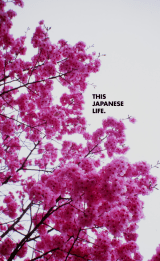I have to buy gifts for 30 strangers.
It’s a Japanese tradition of Omiyage: You give gifts to neighbors; employers; co-workers; landlords; especially when you first meet them.
The rules:
Gifts should reflect interests I share with the (possibly nonexistent) recipient. They should not involve reading English. Too cheap is disrespectful; too expensive creates an obligation. Creating an obligation is rude. Elaborate gift wrapping is expected.
Don’t give anybody four knives.
I’ve heard this more than once. Four is the death number; don’t give anything in fours. Knives symbolize severing a friendship. (Indeed, this implies that there are gifts for severing a friendship).
A hundred years ago, gifts included a slice of fish on top of the wrapping paper. A gift given without fish implied tragic news and that the recipient would have to abstain from fish out of respect for the dead. Including a fish meant “I’m giving you a gift, but don’t worry, no one died, let’s eat fish.” Now they just wrap the gift nicely.
The Magical Contagion
No one in Japan still cares, but gift-giving was spawned by folk medicine. The sick begged for food and healthy families offered rice. Their health permeated the rice and cured the disease: The “Magical Contagion”. Gifts transferred power from the giver to the recipient; unbalanced exchanges diminished the magical power of the giver. (Re: Harumi Befu). *
Today, food is still the go-to omiyage. Candies are recommended; but not if they melt or rot in the 100-degree humidity of a Fukuoka summer. I’ve run stress tests: Saltwater taffy goes into a greenhouse to see if it dissolves in the heat (it does).
Gifts should reflect where you are from.
As a Mainer, I hunt for anything lobster-shaped, lobster-imprinted, lobster-flavored or lobster-influenced. Plush lobsters, lobster lollipops, lobster-flavored jellybeans, lobster neckties, books of lobster photos.
Who wants this? I have no idea, but American tourists keep the entire Maine coastline financially stable from lobster-shaped soaps alone. My power will be transferred to my new colleagues by way of crustacean-shaped talismans.
Conflicting Information
Whiskey is a bad gift for a supervisor because it implies they are always drunk; whiskey is a great gift for a supervisor because supervisors are always drunk (My girlfriend insists whiskey is OK simply because it’s delicious).
Apparently even the Japanese are mildly annoyed with all this gift-giving, an entire nation waiting for a Yankee Swap. But it’s endearing and participating in it feels endearing. Befu wrote that these empty Japanese gestures have survived because they’re empty gestures, and so participating in them builds solidarity. Intertwining people in a keeping-up race encourages social contact and, more cynically, ensures that someone always owes someone else a favor (which is at the heart of every community).
So giving insincerely becomes a sincere act. It shows that you embrace the social obligations of the culture you’re joining. So I’ll buy some ground coffee for a stranger and bow, and we’ll wink and nod and we’ll be Japanese.
Addendum
* = No doubt, these feudal doctors would wonder what kind of magic permeated one recent omiyage purchase, a mesh baseball hat depicting a condescending eagle staring away from Mt. Rushmore as an American flag covers the sky. Beneath it, the inscription: “Black Hills, South Dakota.”





Pingback: On Suitcases | 荷物 | This Japanese Life. | 生命を外面九天です
Pingback: On Japanese Laundry | 洗濯 | This Japanese Life. | 生命を外面九天です
Pingback: On Being Homeless in Japan | This Japanese Life. | 生命を外面九天です